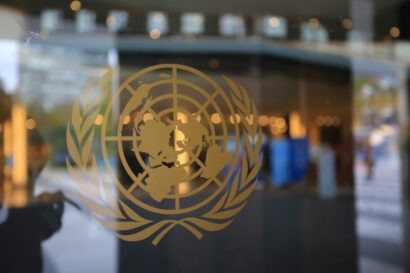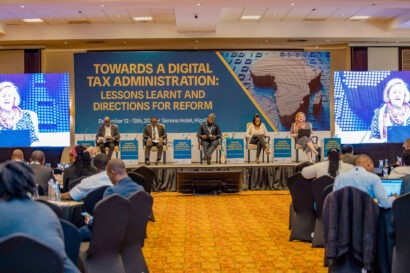The Institute of Development Studies (IDS), home of the International Centre for Tax and Development (ICTD), has published this week its Annual Review for 2023-24, highlighting the progress made towards its vision of a “more equitable and sustainable world”.
In his foreword, IDS acting Director Peter Taylor said the report “[celebrates] the many positive achievements over the past year that show how our contributions through research, teaching, and engagement are having a real impact.”
One of IDS’ five strategic priorities includes championing the use of evidence for social and environmental justice. Among IDS’ successes for the year in this regard was the pioneering research conducted by ICTD that led to a change in the tax policy of the Rwandan government.
Influencing policy change in Rwanda
An excerpt from the Annual Review reads:
In recent years, mass registration campaigns have been considered by policymakers and donors alike as a speedy way to boost lower-income countries’ tax revenues. ICTD’s research, in collaboration with the Rwandan Revenue Authority (RRA), however, established that many people being registered via mass campaigns in the country had no income to declare. This was unproductive in revenue terms and yielded no benefit for tax authorities.
The RRA consequently decided to deregister tens of thousands of taxpayers, many of whom had been registered through mass registration campaigns and waive penalties related to their recent declarations – a move welcomed by the Rwandan public.
ICTD researchers also collected statistics on taxpayer behaviour in six other African countries. Their findings – including that inactive taxpayers make up the majority of those registered – are contributing to better global understanding of equitable ways to increase revenue in lower-income countries.
(Read: Active Ghosts: Nil-filing in Rwanda; Catch Them If You Can: the Politics and Practice of a Taxpayer Registration Exercise; What is Wrong with African Tax Administration; Why Mass Tax Registration Campaigns Do Not Work)
Impact in broader tax debates
The Annual Review likewise noted ICTD’s contribution to the United Nation’s (UN) evidence base surrounding the negotiations for a new UN framework convention on tax, which has been regarded as a historic development in global tax governance.
The Centre was commissioned to prepare two inputs on the views of lower-income countries of existing UN tax models and bodies for a preparatory report by the UN Secretary-General ahead of the resolution in November 2023.
(Read: Tax Treaty Norms Among Lower-Income Countries and the Role of the UN Mode: Past, Present and Potential; Inclusive and Effective International Tax Cooperation: Views from the Global South)
Evidence into policy
Connecting evidence to policy and practice has been an area in which IDS, including ICTD, has built a strong reputation. As the report notes, this work includes “influencing donors, agencies and public bodies to take more inclusive approaches to using evidence and evaluating impact.”
This is even more essential in today’s context, as underscored by IDS Board of Directors Chair Deepak Nayyar in his opening statement.
While these are “troubling times” – where “economic, political, and geographical divides are widening” and “existing power structures are unequal and unfair” – Nayyar said the world is likewise “witnessing a groundswell of movements driven by people and civil society agitating for reform.”
“Alongside collective action to tackle the most pressing global challenges, the need for world-class development research which reflects lived experience, as well as rigorous analysis, has never been greater,” he added.
Read the full Annual Review 2023-24.



